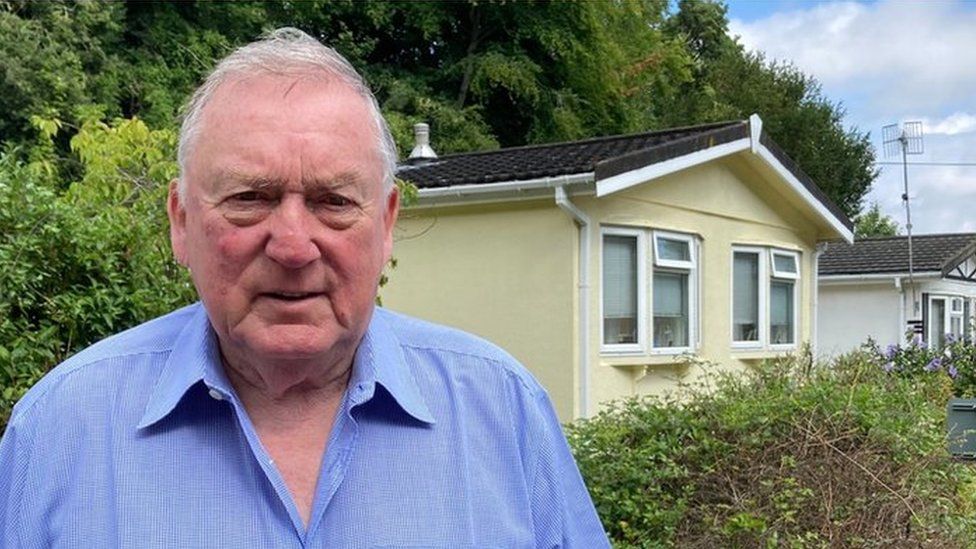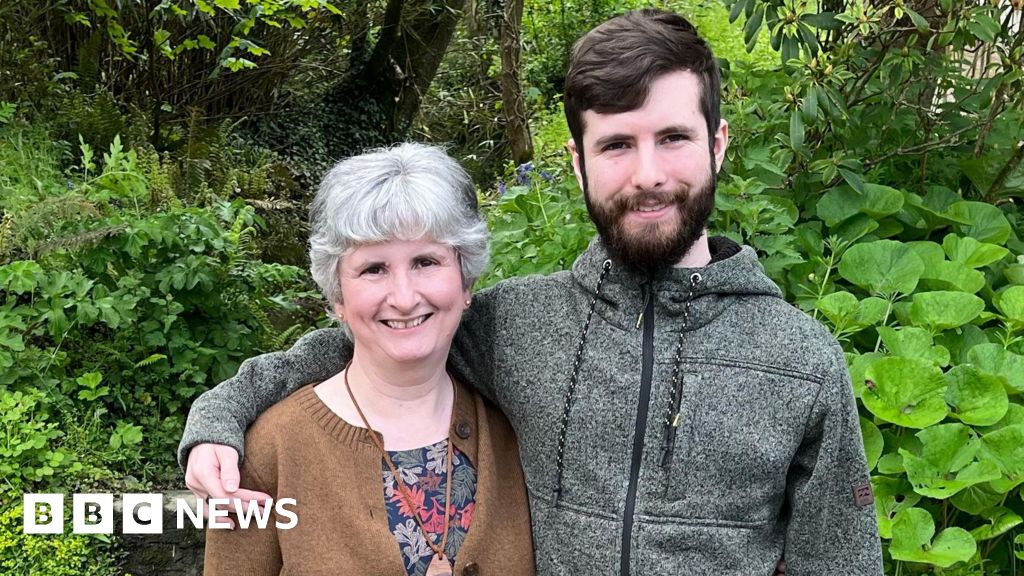ARTICLE AD BOX
By Kevin Peachey
Personal finance correspondent, BBC News

Brian Doick says park home residents are seeing bills rise
Everyone has been promised a £400 rebate on their domestic energy bill this winter, to offer some relief from soaring prices.
This is part of a package of government support to help people with the rising cost of living.
But millions of people are still facing uncertainty over exactly how they will get the promised rebate.
Mobile home residents
Mobile homes can vary in size and structure, and often it is pensioners and semi-retired people who own them, paying a fee to the park owner for their pitch.
Many park home residents have been afraid they would not receive the promised £400 energy rebate. Their concern prompted a petition, signed by more than 11,000 people, calling for confirmation that they will not miss out on the payment, which has been promised to every household.
While the government has stressed that they will receive the money, the mechanics of how their bill will be discounted remain unclear.
Residents do not have a direct relationship with their energy supplier, so cannot be given a straightforward rebate like everyone else. The park owner is billed by the energy firm, then the owner charges the residents for the power they use.
"A lot of people believed they would not get [the money]. However, there is no doubt, and I have been assured by government officials, that this money will be paid," says Brian Doick, who lives in a mobile home in Sussex and is president of the National Association of Park Home Residents.
"This will not be a cash payment but will come in a way that covers [some of] the cost of your utility bill. It could be vouchers or something else, but I am assured you will be paid from October. We will be paid exactly the same as everyone else."
For most regular billpayers, the rebate will arrive in six instalments, with a discount of £66 applied to energy bills in October and November, and £67 a month from December to March 2023.
A government spokesman said officials and ministers were "urgently working" to ensure everyone, including park home residents, received the support.
Mr Doick, an 81-year-old retired firefighter, says support is crucial, because mobile home residents are facing inflation-linked increases to their pitch fees.
Every year, the park owner can put up the fee in line with the Retail Prices Index (RPI) measure of inflation, which currently stands at 12.3%.
Many residents also have access to gas from cylinders, or tanks, outside their home, but that has also been going up in price.
Tenants 'at the mercy of landlords'
Hundreds of thousands of tenants pay rent which includes bills - but the type of contract can vary.
Image source, Getty Images
John Gallagher, a solicitor at housing charity Shelter, says that - in the case of a fixed rent, inclusive of bills - there is no specific legal obligation for a landlord to pass on the energy discount.
Tenants are "at the mercy of their landlord", he says.
However, for those who pay a variable service charge that covers gas and electricity, the landlord is not allowed to overcharge for the energy used, or make a profit on it.
"If [landlords] pocket the government support and continue to charge you the same rate for utilities or more, they may be in breach of these rules," he says.
The National Residential Landlords Association (NRLA) agrees that where tenants are being charged higher prices for the energy they use, the discount should be passed on to them by their landlord.
However, a spokesperson pointed out there would be cases where all-inclusive rents had been set without reflecting the recent surge in energy costs, in which case the landlord would be shouldering the impact of higher prices.
In principle, though, landlords with a domestic electricity connection, where a fixed cost for energy is included in the rent, "should also be passing on the discounted payments to tenants", the government says.
Other tenants, such as housing association tenants on communal heating networks, who have their heating supplied through a central boiler that reaches all homes in a building, rather than having an individual boiler in their home, pay for their heating bills via service charges.
Many of these residents are vulnerable, living in supported or sheltered housing. Although the government has said they will definitely receive the £400 rebate, this is another group awaiting detail on how the money will get to them.
Payments in Northern Ireland
From the outset, the government has said that residents of Northern Ireland should receive the £400 rebate.
Energy supply is different to the rest of the UK, and the price cap that operates in England, Wales, and Scotland does not apply here. But prices have also been rising in Northern Ireland over the last year.
Without a functioning executive government at Stormont, the issue is being discussed by a taskforce set up by the chancellor, Nadhim Zahawi.
A week ago, Northern Ireland Finance Minister Conor Murphy said there had been "long overdue" confirmation that the rebate would apply in Northern Ireland.
But he added there was no guarantee that Northern Ireland households would receive the money from October, like the rest of the UK. Instead, payments might not be made until early next year.

 2 years ago
49
2 years ago
49








 English (US) ·
English (US) ·